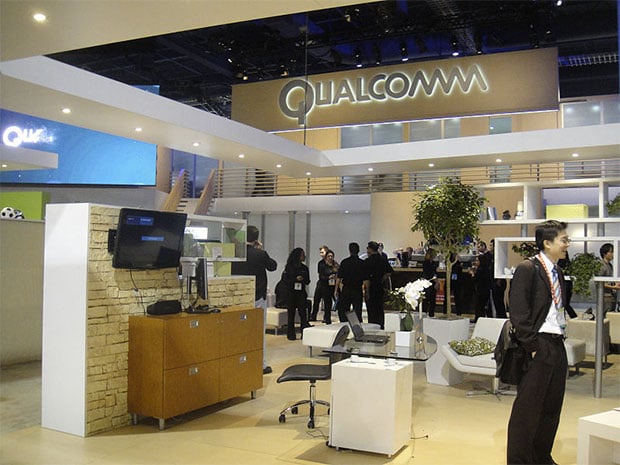FTC Sues Qualcomm For Anticompetitive Chip Licensing And Strong-Arming Apple For Exclusivity
Qualcomm has faced legal hurdles in recent years for its licensing practices in both Europe and in Asia. Now, the company is coming under fire right here in the United States, and the Federal Trade Commission (FTC) is leading the charge.
The FTC alleges that Qualcomm used its dominant position as the world’s premier supplier of mobile baseband chips to force “onerous and anticompetitive supply and licensing terms” upon smartphone manufacturers. These actions were also reportedly meant to stifle Qualcomm’s competitors in the baseband field in order to maintain its position as the top supplier.

Qualcomm is accused of running afoul of fair, reasonable, and non-discriminatory (FRAND) patents, which have been deemed essential industry standards necessary for the proper function of hardware with cellular networks. Qualcomm allegedly threatened the supply of baseband chips for smartphone manufacturers that didn't pay increased royalties fees for these FRAND patents.
“These royalties amount to a tax on the manufacturers’ use of baseband processors manufactured by Qualcomm’s competitors, a tax that excludes these competitors and harms competition,” cites the FTC. “Increased costs imposed by this tax are passed on to consumers, the complaint alleges.”
The FTC is accusing Qualcomm of three primary offenses:
1) Maintains a “no license, no chips” policy under which it will supply its baseband processors only on the condition that cell phone manufacturers agree to Qualcomm’s preferred license terms. The FTC alleges that this tactic forces cell phone manufacturers to pay elevated royalties to Qualcomm on products that use a competitor’s baseband processors. According to the Commission’s complaint, this is an anticompetitive tax on the use of rivals’ processors. “No license, no chips” is a condition that other suppliers of semiconductor devices do not impose. The risk of losing access to Qualcomm baseband processors is too great for a cell phone manufacturer to bear because it would preclude the manufacturer from selling phones for use on important cellular networks.
2) Refuses to license standard-essential patents to competitors. Despite its commitment to license standard-essential patents on FRAND terms, Qualcomm has consistently refused to license those patents to competing suppliers of baseband processors.
The third relates specifically to its arrangement with Apple. The lawsuit alleges that Qualcomm cornered Apple into remaining its sole supplier for baseband chips from 2011 through 2016 (Intel finally broke through the wall by providing GSM chips for the iPhone 7 in 2016). “Qualcomm recognized that any competitor that won Apple’s business would become stronger, and used exclusivity to prevent Apple from working with and improving the effectiveness of Qualcomm’s competitors.”

Qualcomm reached an agreement with Apple that precluded it from using competing technology like WiMax (which a few years ago was vying against LTE to become the dominant 4G wireless standard). For its part, Apple received rebates for the royalty payments made to Qualcomm “in excess of a specified per-handset cap” according to the court filing.
Qualcomm of course denies any wrongdoing, and was quick to fire back at the FTC allegations:
Qualcomm believes the complaint is based on a flawed legal theory, a lack of economic support and significant misconceptions about the mobile technology industry. The complaint seeks to advance the interests and bargaining power of companies that have generated billions in profit from sales of products made possible by the fundamental 3G and 4G cellular technology developed by innovators like Qualcomm…
The portrayal of facts offered by the FTC as the basis for the agency’s case is significantly flawed. In particular, Qualcomm has never withheld or threatened to withhold chip supply in order to obtain agreement to unfair or unreasonable licensing terms. The FTC’s allegation to the contrary -- the central thesis of the complaint -- is wrong.
Qualcomm also alleges that this lawsuit was fast-tracked before all evidence was presented in what it believes was a result of potentially partisan tomfoolery:
Despite an appeal from members of Congress to refrain from “midnight litigation” with novel and untested legal theories that could damage competition in the U.S., the FTC accelerated the investigation of Qualcomm and directed the filing of the complaint just days before the change of the Administration though only three of five FTC commissioners are in place.
For those keeping score, Qualcomm was fined $975 million by Chinese regulators in 2015 and was hit with another $853 million fine in South Korea for similar licensing practices in 2016. So perhaps Qualcomm shouldn’t be too surprised that the U.S. would also get in on the act.

